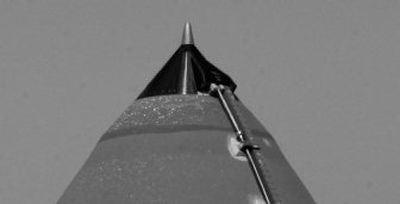Hail damage delays space shuttle launch

CAPE CANAVERAL, Fla. – NASA on Tuesday postponed next month’s launch of space shuttle Atlantis after a hailstorm left hundreds of small dings on the spacecraft’s external fuel tank.
The launch, which had been set for March 15, was pushed back to at least late April to give NASA time to make repairs.
NASA technicians planned to move the shuttle back to a giant hangar as early as this weekend to examine the damage and decide whether repairs can be made at the Kennedy Space Center or whether the tank needs to be returned to its manufacturer in New Orleans.
“At this point, we don’t see anything that looks irreparable, but we really want to get it back to where we can look at it up close,” said John Chapman, external tank manager.
The storm Monday lobbed golf-ball-size hail at the launch pad, making a ring of hundreds, if not thousands, of dings on the upper reaches of the 153-foot-tall external tank. It crushed some foam along wedge-shaped brackets, an area where foam has been known to shed in the past.
The hail also caused cosmetic damage to more than two dozen tiles along the shuttle’s left wing.
“This constitutes, in our evaluation, the worst damage we have ever seen from hail on the external tank foam,” said Wayne Hale, manager of the space shuttle program. “We have had hail a number of times in the past. Hail is not unusual in Florida.”
The launch of Atlantis would have to be after a Russian Soyuz vehicle completes a mission to the International Space Station in the first part of April, putting the next opportunity likely between late April and late May, officials said.
NASA managers had hoped to fly five shuttle missions in 2007, the most ambitious schedule in five years, and Atlantis’ flight was set to be the first of the year. The next shuttle flight after that was set for June.
Hale said he was confident the goal of five flights could still be met. He said, “There might be some small effect on a couple of later flights, but by the time we roll around to the end of the year, I expect we would be fully able to catch back up.”